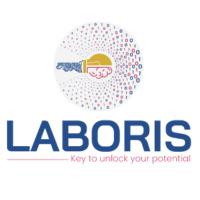
The Laboris Learning Methodology is a forward-thinking
approach that integrates Cognitive Learning strategies with Bloom's Taxonomy to
enhance educational outcomes. By focusing on the cognitive development of
students, this methodology aims to stimulate critical thinking, creativity, and
problem-solving skills.
methodology, designed to empower students to think independently, ask
insightful questions, and explore concepts from various perspectives. This
approach recognizes the individuality of each learner, catering to diverse
learning styles and preferences. By engaging actively with the material,
students are better equipped to retain knowledge over time and apply it to
real-world scenarios. The goal is not just to absorb information but to develop
the capacity to adapt and tackle new challenges effectively.
levels ranging from basic recall of facts to complex analysis and creation,
forms the foundation of the Laboris Learning Methodology. This taxonomy
provides a structured framework that supports the progression from simple
understanding to higher-order thinking. By aligning instructional strategies
with Bloom's Taxonomy, the Laboris Methodology ensures that learners advance
through stages of knowledge acquisition and application, ultimately fostering deeper
learning and skill development.
Relevancy
As automation and technological advancements reshape the job
market, the ability to tackle complex and multifaceted problems is increasingly
vital. The Laboris Learning Methodology supports this skill by encouraging
students to approach problems from multiple angles and develop innovative
solutions.
This involves analyzing information objectively and making
reasoned judgments. By incorporating cognitive learning strategies, Laboris
enhances students' ability to evaluate evidence, think logically, and make
informed decisions.
In a rapidly evolving world, creativity drives innovation
and problem-solving. The methodology fosters an environment where students can
explore new ideas, experiment, and develop original solutions to challenges.
Effective management of teams and resources is crucial in
many professional settings. Laboris prepares learners by promoting skills in
leadership, communication, and interpersonal interactions.
Collaboration and teamwork are essential in the modern
workplace. The methodology emphasizes skills in working effectively with
others, managing group dynamics, and achieving common goals.
Understanding and managing one's own emotions, as well as
empathizing with others, is key to personal and professional success. Laboris
integrates emotional intelligence training to enhance students' ability to
navigate complex social interactions.
The ability to make sound decisions based on analysis and
evaluation is critical. Laboris supports this skill by teaching students to
weigh options, consider consequences, and make informed choices.
Providing excellent customer service and understanding
client needs are crucial in various industries. The methodology emphasizes a
service-oriented mindset, preparing students to meet and exceed customer
expectations.
Effective negotiation skills are essential for reaching
agreements and resolving conflicts. Laboris incorporates strategies to develop
students' abilities to negotiate effectively and achieve mutually beneficial
outcomes.
Adapting to new information and shifting perspectives is
vital in a dynamic job market. The methodology promotes cognitive flexibility,
helping learners adjust to changes and approach problems with a versatile
mindset.
Cognitive Learning strategies and Bloom's Taxonomy, equips students with the
essential skills needed for future job markets. By focusing on these top ten
skills, Laboris ensures that learners are well-prepared to meet the demands of
an ever-changing professional landscape.
Comments (0)
Categories
Recent posts


Laboris Learning Methodology: An ...
6 Aug 2024




